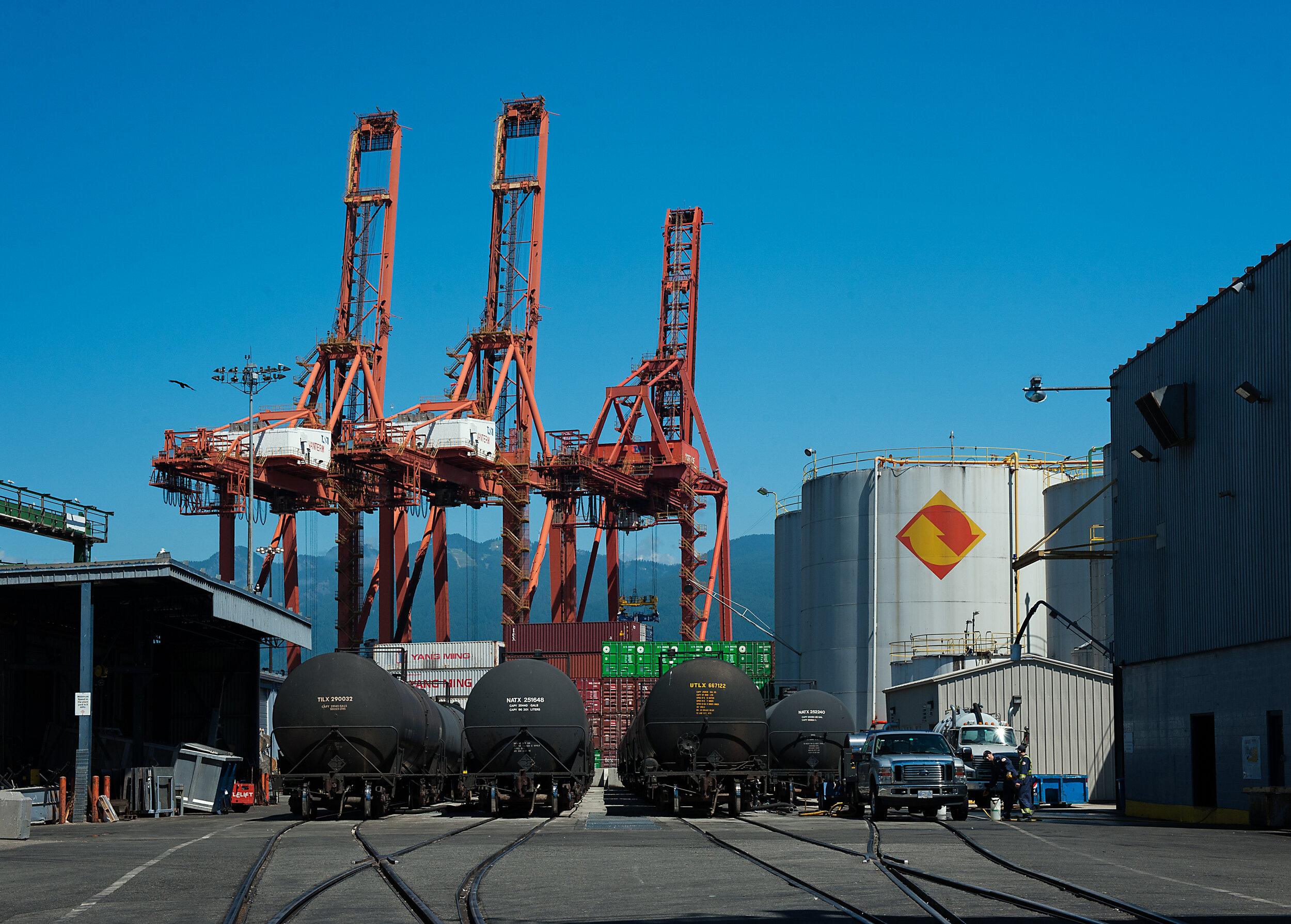SUSTAINABLE AGRICULTURE? OR MORE CARGO CONTAINERS?
West Coast Reduction Ltd. facility on the South Shore of Burrard Inlet.
Land use – Port of Vancouver threatening local agriculture
Today, more than ever, we’re counting on local farmers and processors to put healthy food on the table. Unfortunately, a critical part of our agricultural network is now at risk due to competing land-use priorities.
That’s because the Port of Vancouver is pursuing a massive expansion in cargo containers over the long-time home of our member West Coast Reduction – a family-owned company that provides critical processing and bulk shipping services to hundreds of Canadian agriculture producers, and creates feedstock for biofuel production to fight climate change. They also help keep food prices down by putting money back into the agricultural supply chain. And they’re ready to do even more to support our food growers.
We’re sounding the alarm over the Port’s misguided land-use priorities on the South Shore of Vancouver Harbour that are putting our members at risk. The Port aims to be “the world’s most sustainable port”, but this can only be achieved by balancing their international container aspirations with the pressing need for domestic food security.
Organizations like West Coast Reduction play a vital role in the prosperity and sustainability of our entire region. We believe this family company’s critical role must be factored into the Port’s ambitions.
Sustainable agriculture? Or more cargo containers? You decide what’s more important to Canadians – and to the food producers we all depend on.
The Port is prioritizing containers over local agriculture.

